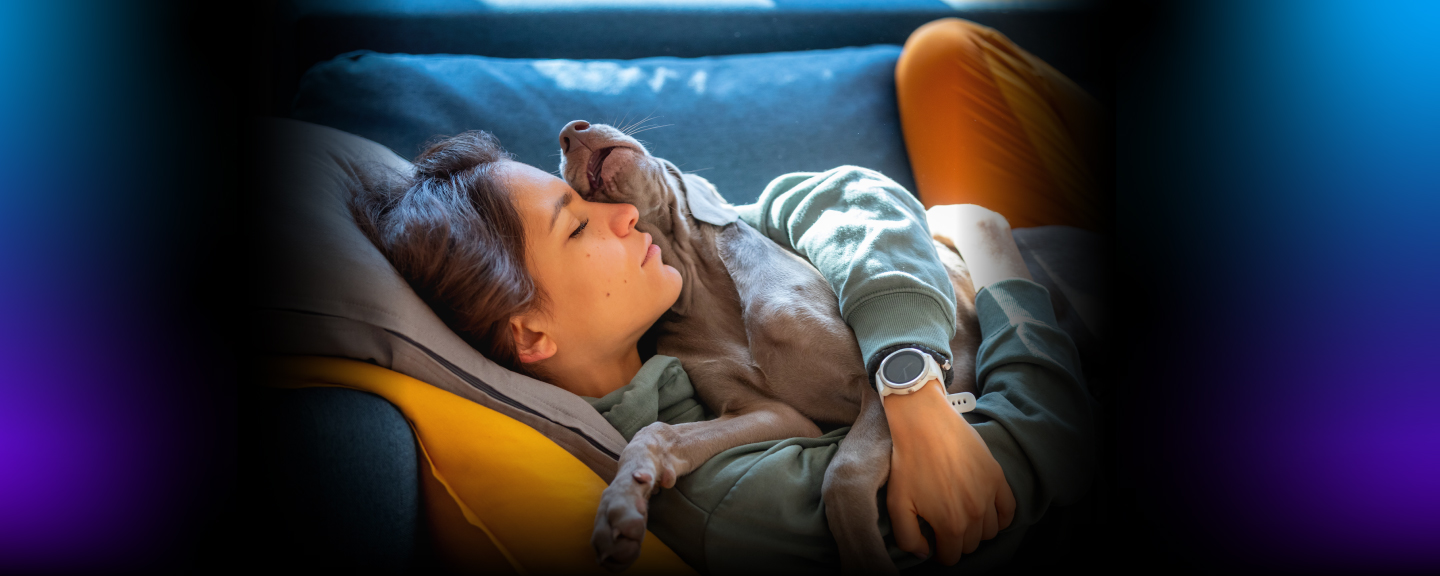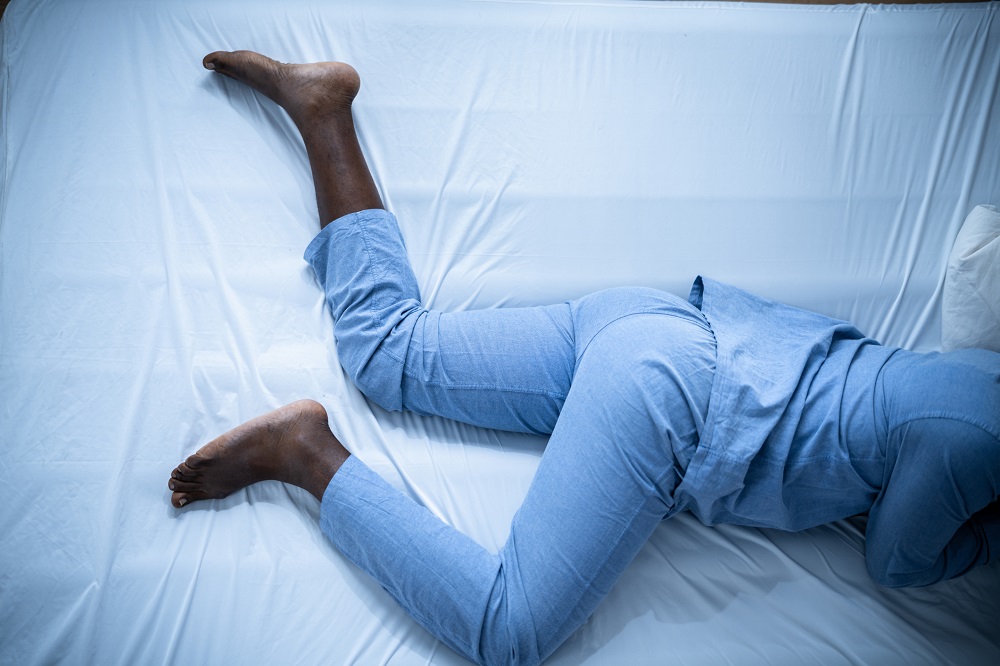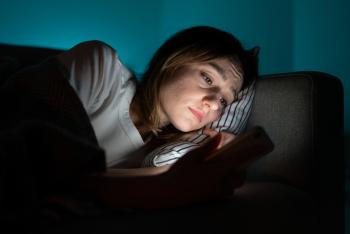Mouth taping is a practice that promotes nasal breathing during sleep, which may improve sleep...
Read More
Restless leg syndrome is a neurological disorder that causes uncomfortable sensations in the arms and legs, accompanied by a strong urge to move them. Symptoms tend to strike at night, or when at rest for long periods of time.
The name itself—restless leg syndrome—is an accurate description of the condition, which is characterized by a persistent, unpleasant feeling in the legs or other extremities. The sensation is often described as crawling, throbbing, aching or pulling, and the severity can vary from patient to patient. Symptoms tend to strike at night or when the patient is sitting still and over time can contribute to sleep deprivation.
Some patients experience symptoms infrequently, while others find themselves overwhelmed with discomfort every time they sleep or sit for an extended period of time. This can make activities such as watching a movie, taking a plane ride or sleeping difficult. Restless leg syndrome can cause sleep deprivation, and secondary symptoms like fatigue and anxiety can appear if RLS goes untreated for a long period of time.
In order to pinpoint the underlying cause of your condition, your doctor will review your medical history and symptoms in detail and conduct a physical and focused neurological exam. Bloodwork is usually necessary, particularly iron levels. Iron deficiency is a common cause of RLS, and iron replacement can result in symptom relief in a large proportion of patients. Your doctor may also refer you to a sleep specialist for a sleep study. A polysomnogram, or sleep study, is a comprehensive test that transmits and records specific physical activities while you sleep, such as your heart rate, brain activity, eye movement and oxygen levels, through a series of electronic sensors placed on your legs, head and chest. A sleep study may be required to rule out other conditions that can worsen the condition but is not required to make a definitive diagnosis.

If you are diagnosed with RLS, there are a variety of potential treatments your doctor may recommend, based on the severity of your condition. Treatment options include:
People with RLS may benefit from lifestyle habits that help with better sleep, such as avoiding caffeine, exercising regularly, quitting smoking and practicing relaxation techniques.
Iron replacement may be curative if a patient has a documented deficiency. Other medications are also available to provide relief of symptoms.
Sleep deprivation can lead to a number of health conditions, which is why screening for RLS is so important. At Inspira, we understand that better sleep leads to better health, and our sleep specialists work closely with other Inspira specialists, taking a holistic approach to care to understand your sleep disorder and other concurrent conditions.
Care at Inspira is always close to home, with a team of skilled, board-certified sleep specialists practicing at six sleep centers across South Jersey. With experienced providers and state-of-the-art technology in a calm environment, high-quality diagnostic and therapeutic sleep services are right in your backyard.
Our sleep specialists treat patients around South Jersey from state-of-the-art facilities.

Mouth taping is a practice that promotes nasal breathing during sleep, which may improve sleep...
Read More
Waking up in the middle of the night can be frustrating, but picking up your phone or trying to...
Read More
Hurkle-durkle refers to the cozy, mindful act of unwinding before bed, focusing on relaxation and...
Read More
The material set forth in this site in no way seeks to diagnose or treat illness or to serve as a substitute for professional medical care. Please speak with your health care provider if you have a health concern or if you are considering adopting any exercise program or dietary guidelines. For permission to reprint any portion of this website or to be removed from a notification list, please contact us at (856) 537-6772